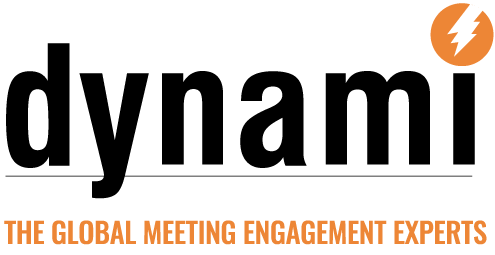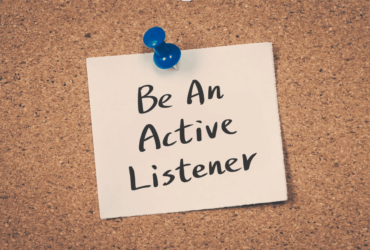We’re likely all familiar with the expression “driven to distraction”. I’d take that a few giant steps further and say we’re being escorted, ushered, chauffeured and valeted to distraction these days! …
OK, I admit it. I’ll come clean.
When I sat down at my laptop to start writing this blog about our rapidly waning attention spans and the “attention pirates” that are plundering our focus, I let a few minutes leak away because I just knew I had to check my emails. After all, it had been at least three minutes since I checked them last.
And while doing so, a pop-up message from an anti-malware software program invaded the lower-right corner of my laptop screen. A moment or two later, my iPhone pinged with a score update from the English Premier League. Nearby sat my tablet which was, for now at least, mercifully quiet. [Then I realized it was powered off.] I turned my attention – well, I tried to turn my attention – back to writing when Alexa suddenly asked if I wanted an update on Ukraine-Russia events.
I said, “Alexa! Yes.” And so it went for another minute or two.
Alas, I decided I was thirsty and went to the ‘fridge. But along the way, I elected to take a quick bio break. The only things missing from this admittedly self-inflicted death-spiral of distraction is the dog dropping a tennis ball in my lap, the kids asking for homework help, or my wife asking whether she should wear “This blouse … or this blouse?”
Irony of ironies, I was living proof of the very New World challenge we all face to varying degrees … mostly chronic, I’d say. What I was trying to write about was not being written because I allowed myself to be distracted. I couldn’t maintain – much less regain – my focus and nearly 45 minutes had gone by.
Somewhere M’M’M’Max Headroom and his blipverts smile.
Stolen Focus
My desire to address our squirrel-like, mental darting from one thing to another to another was the result of listening to a recent, insightful satellite radio interview with author Johann Hari, whose latest book is entitled STOLEN FOCUS: Why You Can’t Pay Attention and How You Can Think Deeply Again [Bloomsbury Publishing, January 2022]. True to its title, the book addressed the hurdles we all face in today’s society as we try to stay mono-focused or on-task. Once interrupted, studies show it takes an average of three minutes to re-focus and, let’s face it, that’s plenty of time for another ping, a ding and a beep-beep-beep reminder or alert.
Now, this isn’t anything criminal in nature, mind you, but there is larceny involved – our productivity, our engagement with others and, I would venture, the quality of our lives. If you’re guilty, you deserve to be that person who was so compelled to return a text message while walking through a mall that she tripped and fell right into a fountain.
Justice was served …
In the interview, Hari shared the impetus for his latest book: “I was really troubled by something which is that, with every passing year, it felt to me that things that require deep focus, that are very deep to my senses – stuff like reading a book, watching a long movie, having deep conversations – were getting more and more like running up and down an escalator.”
So when I got home, I went online and immediately ordered a copy of Hari’s book which was on back-order since apparently, a lot of us count constant distractions as an issue in our lives that needs to be rectified or at least better managed. Since then, I’ve read about the book but, truly, I haven’t actually started reading the book even though it finally arrived.
You see, I’ve been distrac … oh, never mind.
Let’s take a look at four nuggets from STOLEN FOCUS: Why You Can’t Pay Attention and How You Can Think Deeply Again …
We’re Switching Tasks at Unprecedented Speed.
Some graciously refer to it as “multi-tasking” but fact is, we’ve got too much “stuff” going on at one time and too many devices and tech “advancements” that are all, at once, simply much too important to ignore. Or so we think. [There is method to this madness and we’ll address that momentarily.]
“There’s been such an enormous increase in the volume of new information available every second that we’ve become transfixed by things that are very fast and temporary like a Twitter feed,” Hari told the interviewer. “The more information we inhale, the less we’re able to focus on any one piece of it. Our brains aren’t designed to absorb so much at a time.”
Hari referenced a study in which 136 students took an exam, some with their phones nearby and powered on and some with their phones nearby but turned off. Those whose phones were still in play scored, on average, 20% lower than those who were mono-focused. That’s scary! [Moms, Dads, listen up. A 20% swing to the south is the difference between your child bringing home an A … or a C, or worse depending on that school’s grading system.]
Hari went on to say we should separate ourselves from sources of distraction – not just smart technology but anything else that will derail our train of focus. Otherwise, it’s “simply too hard to resist that informational tap on the shoulder”.
Technology Is Deliberately Designed to Distract.
Plain and simple, when our eyes are focused on a screen – smartphone, tablet, laptop and obviously television – someone somewhere is attempting to monetize this engagement. “When we’re looking at our screens, these companies make money. When we’re not, they don’t. So they manipulate us to keep us there, scrolling and clicking, scrolling and clicking. Whenever you’re tempted to put your phone [or other device down], the site keeps drip-feeding you the kind of material that it has learned from your past online behavior.”
Ironically, those advertisers and other determined profiteers who are working so hard to get into our wallets sometimes create a bit of a backlash among those who are so irritated by the nature or frequency of the interruptions that they ultimately choose to do business elsewhere.
One of the Best Ways Out of Distraction Is Finding Your Way into the Flow.
Hari says a “flow state” isn’t easy to put into the words but does his best with: “[A flow state] is when you are so absorbed in what you are doing that you lose all sense of yourself, and time seems to fall away, and you are flowing into the experience itself. It is the deepest form of focus and attention we know of.”
Have you ever been so engrossed in an audio book while driving that you miss your exit by 10 miles? Yep, me too. That’s a flow state. And like meditation, it takes practice, practice, practice.
There’s Not an Easy Solution.
There are ways to reduce the likelihood of falling prey to distractions but they take discipline and consistency and, well, that too can be in short supply.
Hari suggested implementing a “10-minute rule”. Whenever you feel the urge to check your phone, be disciplined and wait 10 minutes first. Alternatively, you can change the notification settings on your phone so apps aren’t tapping on your shoulder every few minutes. It might also be time to eliminate some of those apps that tend to be more annoying than helpful in your daily life. Sports and news apps seem to be hellbent on notifying you of every little inconsequential happening in the world so ask yourself, “Do I really use that app …?”
Hari also bought a kSafe, which is basically a plastic canister with a lock and timer built into the lid. In it, you can stow your cell, TV remote, car keys, even snacks. It comes in a clear plastic but I’d suggest getting a colored-wall kSafe or you’ll be distracted by the sight of these pieces of “forbidden fruit”. There’s also a computer software named Freedom which blocks access to the internet for designated periods.
On an interesting side note, even Hari forces himself off social media for six months each year, sort of a cyber version of Dry January. He even had a friend change his passwords so if temptation got the best of him, he couldn’t cheat. You can always give that a whirl – maybe even just a week, a month or three months– but, ahem, remember how your New Year’s Resolutions and Dry January worked out?
I’d like to say rising above these distractions is as simple as boning up on personal discipline but it’s not. There’s something narcotic about these focus-robbing sources of alluring information. Try as you might, it doesn’t come easily. Some would say managing your precious focus needs a 12-step program. Yet, distractions remain so tempting …
What true-blue soccer fan wouldn’t want to know the halftime score of that Premier League match …?
Hey, it’s Friday. Maybe that restaurant GroupOn alert is something I’d like to take advantage of.
Oh, wow, I haven’t heard from them in years. I gotta take this call!”
“Yes, I’ll take you to the Emergency Room, just let me finish this text first!”
And so it goes. But you already knew that. Because you’re living proof of this modern-day affliction just like I am.
Hari stresses that this constant flow of task-busting info – accompanied by various beeps and pings and, Lord help us, that Tin Lizzie ringtone – are a systemic problem and can only be addressed, managed and reined in on a systemic level. It’s not just on the individual to get themselves back on track, it’s a shared responsibility with those advertisers, promoters and hustlers who want a lion’s share of your focus at the expense of your workplace productivity, your personal relationships, your exercise regimens, etc.
“The truth is you are living in a system that is pouring acid on your attention every day,” Hari says, “and then you are being told to blame yourself and to fiddle with your own habits while the world’s attention burns. Systemic problems require systemic solutions.”
In short, it’s time to tell those purveyors and peddlers of non-stop dings and pings and beep-beep-beeps to simply bleep off!
Cheers,
Kenneth Jones
P.S. – Click this link to order your copy of ‘STOLEN FOCUS: Why You Can’t Pay Attention and How You Can Think Deeply Again.’ [Amazon Prime – $19.60].






